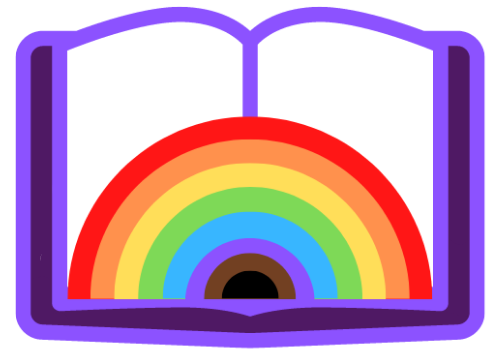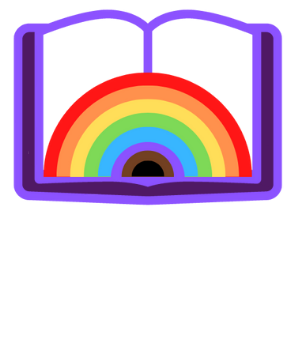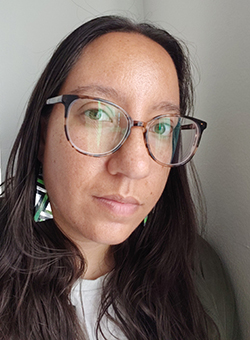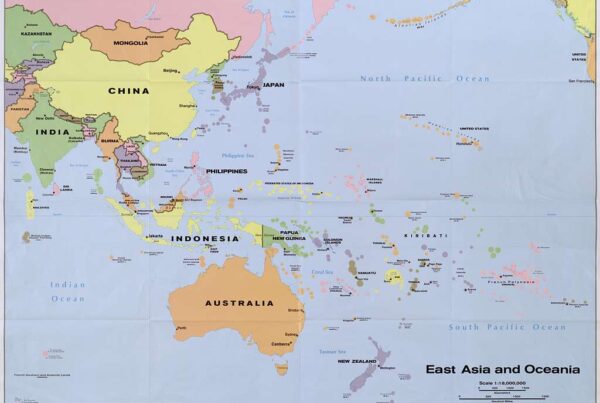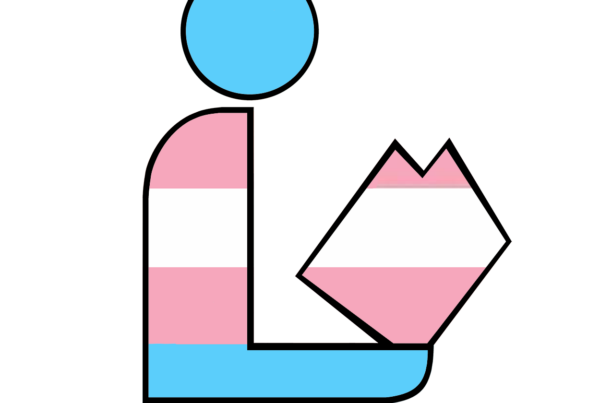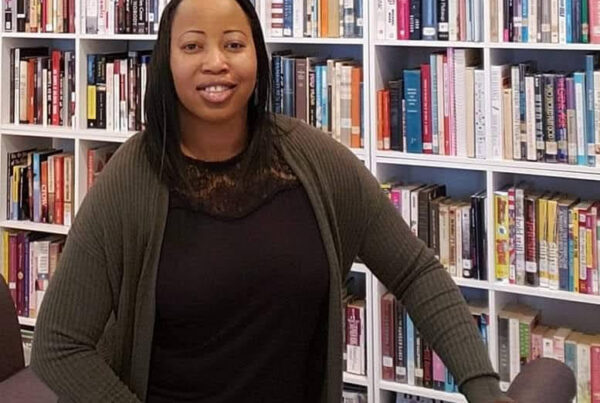Putting the Pacific Islands into AANHPI Heritage Month
”I remember friends asking around this time of year: where are the posts and resources highlighting the Pacific Islander aspect!?
To make sure that Storytime Solidarity didn’t fall into the same pattern, I thought I would reach out to my friend, and fellow librarian, Nicola Andrews, for their thoughts.
~ Annie.
There are many reasons I thought of Nicky.
But the main one is that they are brilliant.
When you think of shining stars – Nicola is one of the brightest.
I have been a proud auntie, watching their growth in librarianship. In advocacy. In their mana and strength.
And, just this week, their alma mater publicly recognised this brilliance, when Nicola received the iSchool Distinguished Alumi GOLD Award.
And, her first book of poetry — MĀORI MAID DIFFICULT — will be published shortly!
Nicola may not be comfortable with this praise, but: kāore te kumara e kōrero ana mo tōna ake reka (the sweet potato does not brag about its own sweetness).
I, however, will shout it to the skies.
Kia ora Nicola. Ngā mihi nui for accepting my invitation to talk. Thank you for your emotional labour. Thank you for sharing your thoughts.
Kia ora, Annie! Thank you for the invitation. I am Māori (Ngāti Paoa) and Pākehā; my whakapapa includes Tongan and Samoan whānau as well. I grew up in Waitākere but currently live on Ramaytush Ohlone territory where I work as a librarian at the University of San Francisco.
First of all. In doing my research, I have found a variety of acronyms for this month. AAPI. APAHM. APIA. AANHPI. Do you have a preferred acronym?
That is a good question, and as you can tell there are a variety of answers! I personally use the name, “Asian American and Pacific Islander Heritage Month” because that is the official government term for this federally observed month. For me, the exact name used is not as important as making an effort to represent a diverse range of cultures that fall into these categories.
However, organizations such as the Pacific Islander Community Association are advocating for Asian and Pacific Islander to no longer be grouped together. This could be useful in instances where the needs of Pacific Island communities are being obscured, or in instances where organizations, events, and resources are advertised as being “AAPI” but have not intentionally considered Pacific Islanders and our needs.
Thanks to your online advocacy, I know that there is a lack of acknowledgment of the Pacific Islander part of the month. I’ve looked through the APALA (Asian/ Pacific American Librarians Association) awards winners archive, from 2005 to 2023. There are no Pasifika picture books listed.
I can access Pasifika books pretty readily, by walking to the shelves in my library. Although, they are a hard-won thing.
Do you have suggestions as to where children’s librarians in the US and Canada can access Pasifika children’s books?
AAPIHM is a time for celebration and inclusion, not to be further excluded. Nobody wants to hear that it is “too hard” to represent them or ask about their needs. I encourage my librarian colleagues to be proactive in their collection development practices and to prioritize developing these collections instead of minimizing Pacific Island authors, illustrators, and readers. Write to publishers and ask them what Pasifika authors and illustrators they publish – or ask vendors in person at conferences like ALA (American Library Association). Browse the University of Hawaii Press and University of Guam Press and order their Indigenous-authored/illustrated publications. Try Huia Publishers or Kamehameha Publishing. Try Indigenous bookstores like Paperbacks & Frybread, Native Books Hawaii, or Quiet Quail Books, or even giftshops like Nā Mea Hawai’i and media outlets like The Coconet. Additionally, my colleague, Neil Kepoʻokela Ordinario, recently shared the Little Pasifika Readers book list which is curated by Kealani Netane. Steve Shaw at Oakland Public Library has curated a very good reading list too.
I was able to curate these resources in about twenty minutes. I have no doubt that librarians – trained information professionals – could also find these resources if they put in the effort. I advise that librarians also do some extra research to determine that the authors and illustrators of these books are members of Pacific Island communities, and do not take any lists at face value. You may have to set up special orders or even order these books from Amazon, but again, it takes effort to intentionally meet the needs of your communities.
I come from an organisational background that works really hard to acknowledge and incorporate te reo Māori and te ao Māori into all that we do. I’ve recorded myself signing songs and rhymes in te reo Māori, or bilingual, for Storytime Solidarity.
I have had them checked by an in-house advisor, but I worry about crossing the line from respect to tokenism.
Is there any advice you can offer, for those who are concerned they will fall on the wrong side of the line?
Firstly I want to say thank you – tēnā koe for the efforts that you and your colleagues make to share stories and songs in te reo and NZSL. You may be doing this already, but I wonder if in your videos you can invite your Māori or Pasifika colleagues to join you? The benefit of this might be twofold – your colleagues can deepen their understanding of your work, and your viewers will also get to see Pasifika and Māori library staff. Or, I wonder if there are ways to invite audience participation – maybe you select ten books and have a quick online vote a couple of weeks before to choose the next story read.
I feel like there is a very fine line between seeking the input of the community you want to serve and asking labour of them – so I won’t claim to be the expert here by any means! But creating opportunities for feedback are vital in establishing positive community relationships.
Ngā mihi nui Nicky, for your willingness to talk today, and your advocacy. Aroha nui.
Have you read our other posts on AANHPI Heritage Month?
- Resources: a collection of our posts, songs, and books; and links to external resources.
